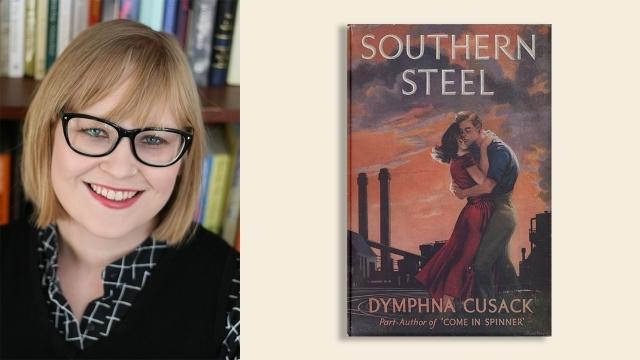
In a 1992 review of Abdelrahmen Munif’s Cities of Salt, Amitav Ghosh coined the term ‘petrofiction’ and pointed towards the invisibility of fossil fuels in much Western literature. Writers, he said, had largely failed to narrate the sources and effects of the energy that powers the modern world. Since then, scholars from across the humanities have explored the ways in which fossil fuelled energy has shaped modes and discourses of being in the world. In a 2013 manifesto, Graeme MacDonald urged critics to ground their investigations of literary engagements with fossil fuels in attention to the energy of narrative form, to look closely at the ‘physical and aesthetic forms and variants of energy resources, fuelling and powering actions, events … and textual structures’ (6).
This paper responds to MacDonald’s call by reading Dymphna Cusack’s engagement with coal in her 1953 novel Southern Steel through her use of melodrama. Set in the ‘coalopolis’ turned steel city of Newcastle in the most anxious months of the second world war, Cusack’s novel contrasts the lives of those who benefit from the city’s coal-fired industries with the struggles of those who are victimised by them. As a form that, as Devin Griffiths explains, is ‘both powered by and reflective of the energy regimes that drive modernity’, melodrama allows Cusack to dramatize the essential moral conflict between the forces of carbon capitalism and what Bob Johnson calls the ‘fossil unconscious’: our repressed recognition of fossil fuels’ varied and long-lasting harms.
Refuting claims that Cusack’s use of melodrama fatally destabilised her otherwise social realist fictions, this paper positions melodrama as her most powerful resource for confronting modernity’s major moral conflicts, including those generated by our dependence on fossil fuels.
Meg Brayshaw is John Rowe Lecturer in Australian Literature at the University of Sydney. She has published on Australian modernism, women’s writing, literary representations of place and space, and narrative engagements with the Anthropocene. She is editor of the Sydney Studies in Australian Literature series at Sydney University Press.
Location
Speakers
- Meg Brayshaw, University of Sydney
Event Series
Contact
- Monique Rooney